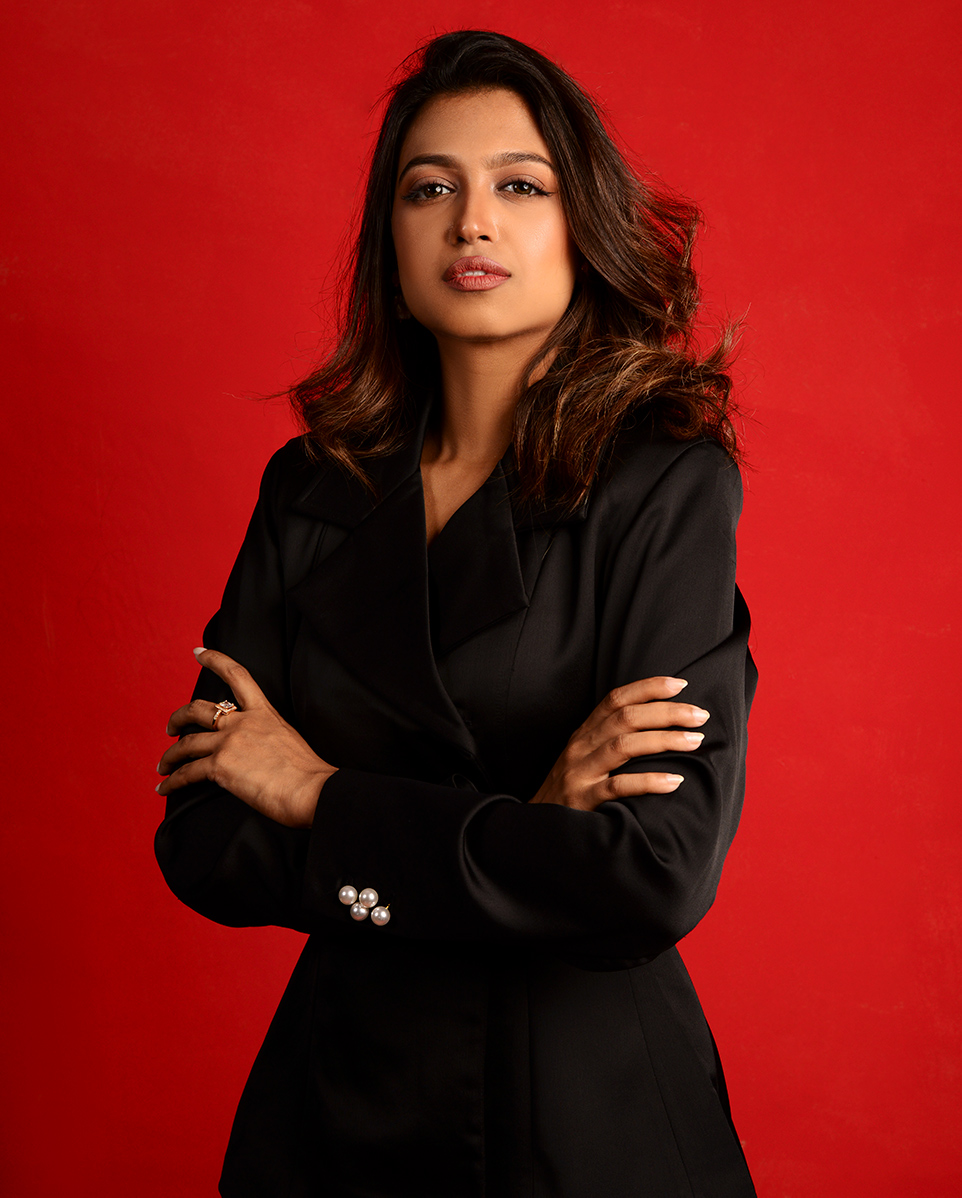Throwing a lifeline
Moshal Mental Health came into being from Maria Mumu’s urge to spread awareness about mental health and how it affects everyone when no one speaks about it and from the realization that we need someone to reach out to or could get help in need of crisis. Arka Dev Biswas speaks to Mumu, the force behind Moshal and shares with us her journey as an activist and social reformer.

Learning from Life
Maria Mumu’s life, according to her, has been nothing less of a sinusoidal curve. Life has given her the ups and downs aplenty. But throughout all the phases, the one thing she craved consistently was a day of normalcy. “People say ‘weaved with the same threads’, it is true for everything we know. Everything is intertwined delicately together. At one moment I see myself in Dhaka, the next moment on the streets of London, the other moment at the rail station, then later in a dark place. All I would ask for is to be normal.”
Byproduct of her surroundings
Early age has taught Maria Mumu lessons that many would never imagine. “I learnt early on, I need to take care of my mother and my brother. Having no breadwinner in the house, we were not financially sufficient. I had to work multiple jobs just to stay afloat. My mother, being the strong and giving person she is, just wanted to give her the chance to have fewer burdens than she already had. Taking care of a young child is already difficult enough, add the pressures of ‘social norms’ and ‘social standards’, these arbitrary ideals cornered us, whereas it should not have been the case.” In a new lease of life, Maria’s maternal grandparents assisted her mother to go to London so that they could settle there and build a new life. However, circumstances made Maria and her then-pregnant mother head back to Bangladesh in hope that things would be better than when they left. Their return to Bangladesh came in vain, losing their hopeful life in London. The young family of two, along with Maria’s mother in her third trimester, sat at the rail station, desolated with no idea of what to do or where to take shelter that night. A lady approached them and sat next to Maria’s mother, asking what had happened. Maria’s mother poured her heart out while the lady listened to everything, and the lady offered to accommodate them for the night and treat them as family members. The lady kept them in a small room that seemed like it was built for sub-letting. When Maria’s brother was born, Maria’s stepfather offered to take responsibility for her brother. However, he was not willing to take responsibility for Maria, as this notion of a daughter not being his own, he was unwilling. Maria was also offered to her biological father as custody, whom she had not met since she was very young. However, the ‘social notion’ prevailed in that case as well.
Ambitious and responsible
Maria always wanted to become a cadet in life. However, the minimum requirements for cadets did not allow her to pursue her dream. She decided to join a prestigious institute to pursue her studies eventually. Maria was a brilliant student. She had the leadership skills and the ability to ensure things are handled well. “Along with being a good student, I had this innate ability to lead my peers. I could single-handedly take responsibility for five sections, and it would be a breeze for me. Besides studying, I also had to work to ensure I could keep studying. This was my reality. ‘Being a kid’ was not a part of the picture. I would go to school, get done, then get to work. That was my life. I taught students as well, did a few anchoring and modelling gigs to make ends meet.” As a teenager, Maria Mumu played the role of the breadwinner, the enabler of the family. Given that her family did not have the same privileges as others, taking up the helm was the only option she had. Safeguarding her mother, her younger brother and herself to the best of her abilities.

The day the domino fell
Being both a good student and working did have its side effects. Hindrances kept coming at every stage. At one point Maria was diagnosed with ulcer, and it had spread to such a degree that she required high dose medications to suppress her pains. “Mentally I was always strong, however, physically I could not cope as much as I wanted. I had a loss in appetite, insomniac to the degree where I could not sleep for days on. My deteriorating health did not allow me to cope with classes and this forced me to take leaves many times. This had an adverse effect on my studies significantly.” Due to her limitations, this resulted in Maria underperforming in her pre-test. The fear of failing exams is one thing, however, facing that reality for a student who has always been hard-working, is a bitter pill to swallow for anyone. Compounding not being able to live up to one’s own expectations, teachers downplaying one’s ability and demoralizing them, it breaks even the strongest. Maria hit rock bottom. In a pit of despair, she felt that nothing is worth the effort anymore. She would elaborately draw out plans on how she would end it all for herself. She could not find a purpose to push forward and getting hope for anything became difficult for her. Internally, she kept screaming for help, but there was no one to help her. “I started to lock myself in my room, and that had adverse effects on me. I would be hallucinating and seeing specifically three events. I would see that I was being targeted by a group. The room would keep expanding to a never-ending space of infinity. And lasty, the entire room flooded in blood. These visions were so vivid and realistic, these kept haunting me and kept me awake.” Maria spoke to a friend about her condition, however, to their amazement, when she spoke about her horrors, she was not breaking down at all. After this, Maria was diagnosed with clinical depression. Upon further evaluation, she found out that the hallucinations of the person beating her were a version of herself. These visions weighed her down so much that these mental pressures added to her deteriorated physical health. She decided that she needed to get her life under her control. Changing her routine and took up medication and physical exercise to alleviate her condition.
However, as conditions in her own house were not the most favourable, she decided to leave home and stay in a girl’s dormitory, working in departmental stores to be self-sufficient. However, Maria’s working life did have its upward trajectory. From starting with a mere salary of 700 BDT per day, to incrementally getting better jobs and better salaries, and working for a foreign company and earning significantly more than she could have imagined. Things could not have looked up better for her.
Two events forced her to reevaluate everything in her life. Maria’s friend committed suicide, and it was a dark moment as one day they had their friend, the next day, he was not there anymore. The second event emotionally impacted her a lot. A junior of her institution committed suicide by jumping from the staircase, as the junior failed her pre-test, exactly like Maria had. “Her death impacted me the most. Even when my own friend passed away, I was not affected this much. I saw it as a wake-up call. Not everyone is strong enough to seek help. The stigma, belittlement, pressure, not everyone can dig themselves out of that hole. I did not know much, but I believed that there is something unfair going on, and I wanted answers.” These events taught Maria that society needs to learn a lot about not believing everything from the tip of the iceberg.
Building the Light of Hope
After all that happened to Maria, she decided to leave the institution that had hurt her so much, and enrolled for A levels, taking up psychology as her primary discipline. The aim was to gather as much knowledge as she could, to help fix a broken system. To create change, one must take radical steps. And Maria knew what she had to do and how not to let her junior’s death go in vain. “I wanted to spread awareness about mental health and how it affects everyone when no one speaks about it. Expressing the pain and suffering, to have someone to reach out to, I wanted to create a space where people could get help.” The idea of having a place that catered to mental health services and awareness was in its infancy in 2018, gaining further momentum with Maria’s participation in the Miss Universe 2019 contest. As soon as Maria got done with Miss Universe, the wheels came in motion to create a foundation, culminating in Moshal Mental Health on 7 February 2020.
Working for well-being
When the pandemic came in full swing in Bangladesh from March 2020, Moshal began to be flooded with calls during pandemic. “The good in all things bad is something that Moshal got from the pandemic. We got so many calls during the pandemic, we set up our system in a way so that it could address everyone who needed it. We maintained legal discretion with every client as well as ensuring they are in a safe space. For anyone willing to take a session, they could fix a session with our consultants. Further sessions are tailored according to the individual’s need, with a check and balance system that enables the person to marginally be better with every step. Experts from renowned institutions gave their valuable time to help individuals, a client relations team to manage the entire process, and people taking the help they needed. Things just fell in place by themselves.”

Moshal Mental Health currently works with many initiatives. Their 3-day boot camp features intensive work with psychologists, entrepreneurs, and individuals formulating their own visions. 10th October marks Mental Health Day, and Moshal gathers students from various folds of life for ‘Be Kind to Your Mind’. It consists of group sessions where individuals speak to each other over the course of 3 days. ‘Connecting Dots: Past, Present, Future’ is another initiative where the institute speaks about the past of mental health, the current state of it, and what the future holds. A breakdown of the state of mental health across time and space, informing individuals on how changes have been taking place in the field of mental health awareness.
‘Let’s talk Mental Health’ is an umbrella campaign that has multiple small projects under it. The idea is to make products that advocate for mental health awareness and create discourse on it. All the earnings from this campaign would be channelled to orphanages to alleviate the conditions of mental health for orphans. We want to help kids on the grassroots level as they are the ones who are not receiving the care they need.”
The Diana Award of 2021 has raked in a lot of recognition and accolades for Moshal Mental Health; however, Maria Mumu believes this is just the first step to fixing an archaic and broken system in a nation like Bangladesh. “These accolades are recognition that has allowed the institute to have more individuals involved in the vision. Nonetheless, whether there is an impact in society solely depends on us as individuals. We are as loud as the most silent voices in the room. Echo chambers are only there when we do not include people into the world we want to build.” Maria believes we, as a society, need to learn about parenting, how family dynamics work, teacher-student relations, and how society deems certain abilities as weaknesses or strengths.
We are all just one day away from having a bad day, one day away from being the next victim of hurt. Understanding that we should seek help and that there is always someone there to listen to us without being shamed for our state is what will keep us from tumbling down. Maria Mumu’s work and Moshal Mental Health’s vision is to give that very helpful. “Helping everyone and giving people the help needed is what we want to keep on doing. Centuries of work still remain to be done, and we have a long way to go to fix what very few can comprehend.” Words of a lady who had spiralled into darkness and was able to gather the strength to dig herself out of the darkness. Not succumbing to that one bad day, that many are never able to return from.



